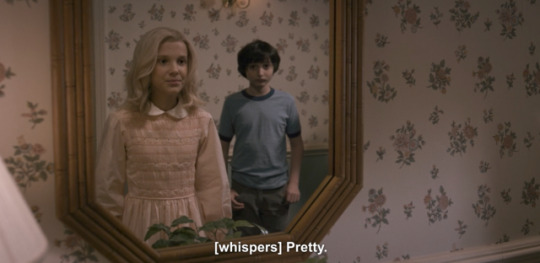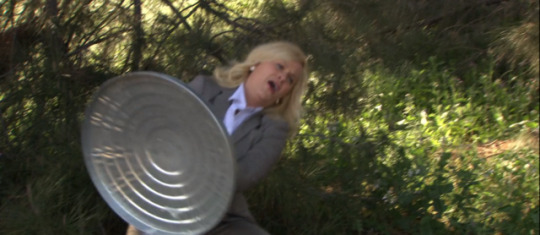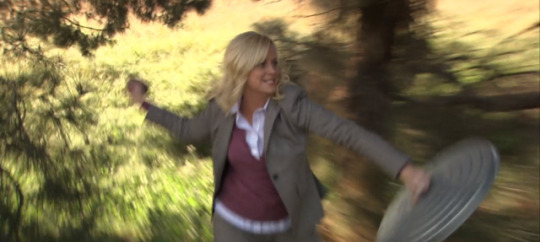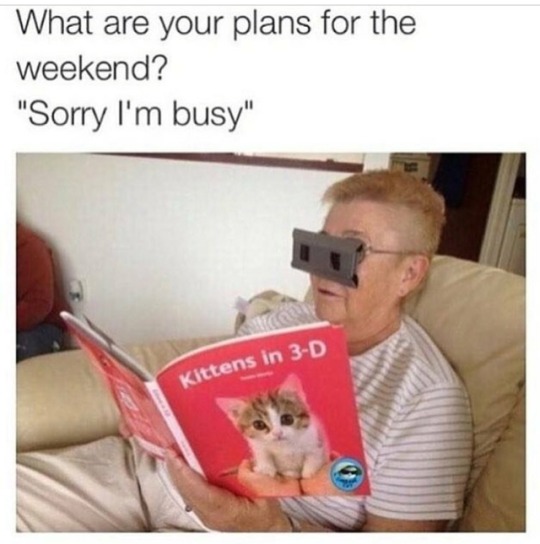"Leslie, I typed your symptoms into the thing up here, and it says you could have network connectivity problems"
Don't wanna be here? Send us removal request.
Video
tumblr
Today has been a wild day and it’s only 10 am
7K notes
·
View notes
Text
Tis But a Scratch
Malcolm Gladwell wrote the article titled ‘Small Change: Why the revolution will not be tweeted’ and I found it irksome to say the least. As someone who has used Twitter for 40% of their life I have seen Twitter evolve into a great mechanism for change, in both documenting and facilitating it. To *reluctantly* give Malcolm some credit he wrote in a less popular time for social media; pre-Tr*mp, and when you could freely use the word ‘tweeps’ without deactivating your account from cringeworthy-combustion.
Halo time :) talk later tweeps :)
— Katie Tomsett ⚡ (@ktmeep) October 30, 2010
But it wasn’t drastically different. Gladwell unfairly underestimated the pivotal role social media has had to play in present day activism when he suggested the scale of uprising seen on the internet cannot be comparable to past activism.
He’s right it can’t be compared because he is applying new ways of mobilisation and connection to a time when social media didn’t exist. His main argument is against the ‘weak-ties’ of social media and the lack of central leadership leading to conflict and chaos. Yet if we look to O’Neil (qtd in Lindgren 167, 170) we see that the internet is full of hierarchies, even if the ‘cyberchiefs’ manifest themselves as the platforms. Gladwell fell victim to his own critique of being too narrow in scope by overlooking the ways in which the internet can provide structure, and its capacity to circulate (Jenkins).

Reading Gladwell’s piece felt similar to Turkle reminiscing on the pre-web days. Both have hypocrisy in their narratives. For Turkle spoke of reduced empathy but failed to recognise how the internet can enable us to expand it. For Gladwell he speaks of activism that started off small and generated larger responses as time went by but didn’t apply this to the online. I would argue this is how almost every # movement starts and they have real consequences (just look at #metoo). For me, social media activism has allowed me to play a part in offline movements across the globe (#womensmarch), it’s enabled me to attend last minute anti-trump protests, and even participate in supposedly trivial things like #catsagainstbrexit. Sure, my cat didn’t didn’t make enough of a ripple to stop *sighs for the next 100 years* Brexit but it did generate real and meaningful conversations between my friends. So, what impact will social media activism continue to have on the offline world? Well, I believe we have yet to scratch the surface.
Kween Betsy loves her independence but even she knows we are #StrongerIn #CatsAgainstBrexit pic.twitter.com/LBQliCbK65
— Katie Tomsett ⚡ (@ktmeep) June 22, 2016
>Works Cited
Gladwell, Malcolm. Small Change: Why the revolution will not be tweeted. The New Yorker, 2010, Online Article. [date accessed: 20/11/17]
Jenkins, Henry. Twitter Revolutions? Spreadable Media, 2013, Online Article. [date accessed: 30/11/17]
Lindgren, Simon. Digital Media & Society. Los Angeles, Sage, 2017, Print.
Turkle, Sherry. Stop Googling Let’s Talk. Nytimes.com, 2015, Online Article. [date accessed: 30/11/12] https://www.nytimes.com/2015/09/27/opinion/sunday/stop-googling-lets-talk.html?_r=0
Side note
I am SUPAH sorry about the ‘Kween Betsy’, just a strange coincidence you share the name of my number 1 social media content generator... ¯\_(ツ)_/¯
#Gladwell reminds me of THAT uncle every christmas that tries to get down with the kids by crapping all over them for participating in sm#aint nobody got time for that#nah m8 on ya bike#imma miss writing these posts :'(
2 notes
·
View notes
Text
daaamn those stats are interesting.... I hadn’t really thought about the transferral of gamer language into the rhetoric of commentators but it makes sense. It has happened multiple times to me where an irritated ‘gamer guy’ has taken their online rage or trolling into the offline or spaces outside of the game to varying degrees of flashes of rage to sustained trolling and it absolutely is down to this connection of gender and trolling you mention. I think concepts of toxic masculinity has a lot to do with it and feelings of inferiority (which is a load of shite) but also the ago old stereotype or ‘norm’ that gaming is an inherently male space and male practice... Some of my friends have taken offence to me generalising these feelings you quoted into targeting all ‘male gamers’ but a) none of them have experienced anything at the level I had with gender motivated trolling and b) it boils down to the #yesallwomen vs #notallmen. By us having these conversations of the targeted abuse against women in gaming I find the men standing up and making the conversation about themselves by proclaiming their sainthood of #notallmen fustrating. They miss the point entirely, it isn’t about demeaning men but supporting and l.i.s.t.e.n.i.n.g to the stories women have to tell (and of course there are so many other intersections of identity that face targeted abuse outside of their gender). I know there have been improvements of representation but I wish we could just skip to the part where the gaming sector isn’t so toxic to women and other under-repped, under-supported groups. <3
The YouTube Void Part IV: Gender, Gaming & Commentary
In 2005, during the height of the online transformation from Web 1.0 to its big brother, Web 2.0, YouTube was born. The early content creators of YouTube were uninhibited by the need for political correctness that marks today’s society, giving rise to a period of creative history sometimes referred to as CringeTube. It was this early content that acted as the cradle for critical and comedic response channels, also known today as YouTube commentary.
Now, we’ve already define commentary as a genre, so I won’t bother explaining that again. Today, I want to discuss the creators themselves. A number of potential trends become apparent when you watch this kind of content as regularly as I do. Two major patterns emerge:
Mainstream commentary creators appear to be almost exclusively male.
Most of the mainstream commentary creators appear to have a history of gaming.
Over the course of several weeks, I put myself to collecting data about creators that met the definition of commentary creators that I provided in my previous post. I sifted through about 66,000 search results and found that 85% of creators could be identified as male and 67% had a confirmed history of gaming. Weird, huh? Now, I haven’t done nearly enough research to make a definite statement about why this might be. But, it reminds me of a discussion Katie and I had in class during our discussion about trolling. We were talking about #gamergate, and Katie mentioned that the thought of upsetting any gamer guy was terrifying to her. I agreed; the thought of having a male gamer on my tail was not something I was fond of.
So it begs the question: is there a connection between gender and trolling? Is there a connection between gender and gaming?
… Is there a connection between gaming and trolling? In my mind, there definitely is. Whenever I watch Let’s Plays I’m always shocked by the language people use to communicate with each other. You hear a lot politically incorrect comments, cyberbullying and generally abusive language.
I feel like it’s an important connection to make in the context of commentary, where the majority of creators are gamers. I’d be interested in studying how the language used between gamers may influence the rhetoric employed by creators of commentary - the most successful of which are controversial, anti-PC and, at their heart, trolls.
4 notes
·
View notes
Photo

All I want for Christmas… is Animal Crossing for GBA
44K notes
·
View notes
Text
Who Pays the Troll Toll?
Trolling to me used to mean armour locking on Halo, posting troll faces to Facebook walls, or singing along to the Trololol man. Now trolling has mutated into something more sinister, a word that makes me feel exhausted. The shift in what it means to troll has been a personal one but also a global one reflected in internet culture. What once used to be, and rarely still is (Ken M), an innocuous practise has turned into a targeted, aggressive, and scape-goating mechanism for harassment or hate speech online.
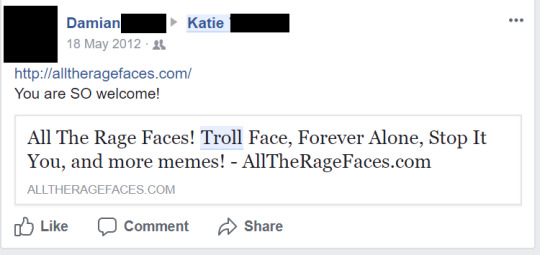
Trolls justify their actions by reinforcing the idea that “real toxicity” and “online toxicity” are different (Rugnetta). It is impossible to subscribe to a digital dualist standpoint of separating the online and offline for most people and pertinently young people as our lives are increasingly, inextricably intertwined with the online realm (Jurgenson). The internet is governed by different rules and user enforced norms but it doesn’t mean that basic principles of human decency and respect don’t apply (Lindgren 89).
So how do we address trolling to shift the toll onto the perpetrators rather than the targets? For some the answer is to simply not respond. By definition engaging with the trolls means you lose so we hear the rhetoric of ‘don’t feed the trolls’ (Spumante). I fully sympathise with this standpoint, as I am sure most of us who have been subject to online harassment veiled as trolling are. However, a very strong part of me thinks we should just call out trolls for what they can be; racists, misogynists, homophobes etc. Reading Condis’s article opened my eyes to a new way of dealing with the malicious trolls; holding the platforms that give trolls a voice accountable. If the platform affords trolls a space to thrive then it also affords us a way of responding to that without direct engagement (Condis). The incredibly frustrating part is that mechanisms put into place by social medias and offline institutions are flawed (Lindgren 136).
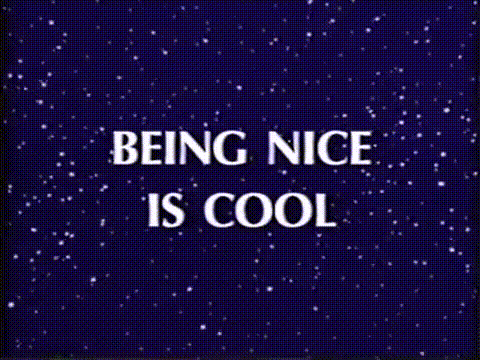
The issue of trolling is a nuanced and prolific one. It won’t be solved overnight but with enough community engagement I hope institutions better equip themselves to deal with the fallout of trolling. Until that time comes it falls to the targets to pay the troll toll but in return we as internet participants can continue to create online safe spaces for each other. To those who insist trolling is harmless I leave this video as food for thought about how the little things can add up.
youtube
Works Cited
Condis, Megan, "The Only Winning Move Is Not To Play: Roosh V, Trolling, And The Game Of Masculinity Online." The Ontological Geek, 2017, http://ontologicalgeek.com/the-only-winning-move-is-not-to-play-roosh-v-trolling-and-the-game-of-masculinity-online/.
Jurgenson, Nathan. The IRL Fetish. The New Inquiry, 2017. [date accessed: 16/11/17] https://thenewinquiry.com/the-irl-fetish/
Lindgren, Simon. Digital Media & Society. Los Angeles, Sage, 2017, Print.
Rugnetta, Mike. PBS Idea Channel. "When Is A Troll No Longer A Troll?." 2016, https://www.youtube.com/watch?v=x69Y61ThyV0.
Spumante, Simon. Trolling the web: a guide. Urban75.com. http://www.urban75.com/Mag/troll.html
3 notes
·
View notes
Link
Finishing up writing/researching my 3rd blog post that has been a rather gloomy experience and thought I would share my new favourite working playlist. Like a musical hug!
Personal highlights:
0:23:01
1:09:24
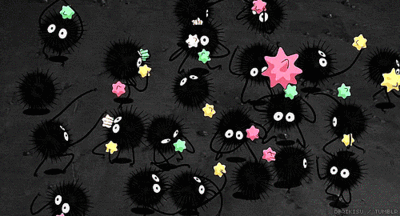
0 notes
Photo

...some more gamey stuff because it turns out I dont do to well when using css :))))
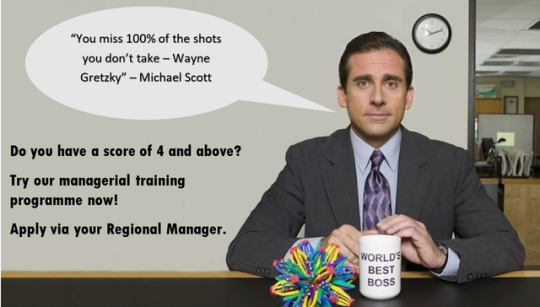
So I needed to make a poster to used in a Twine game I am working on but the source needs to be on the internet so here you go Tumblr, you get a really dumb part of a very dumb story line haha!
3 notes
·
View notes
Photo

So I needed to make a poster to used in a Twine game I am working on but the source needs to be on the internet so here you go Tumblr, you get a really dumb part of a very dumb story line haha!
3 notes
·
View notes
Text
giving gifts in real life: uhhhhhhh here’s a coupon for some canned pineapple
giving gifts in stardew valley:

2K notes
·
View notes
Photo
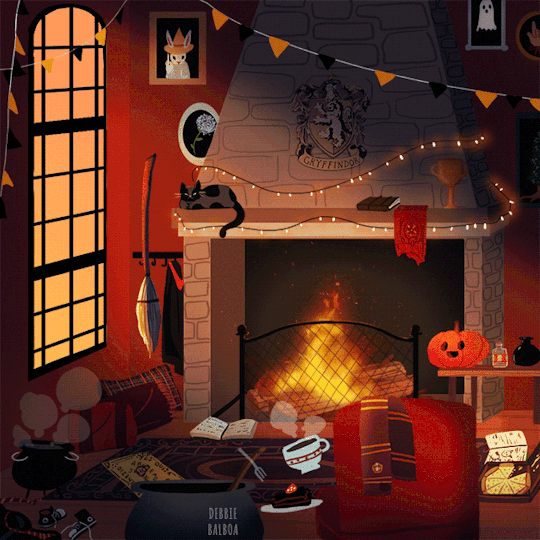
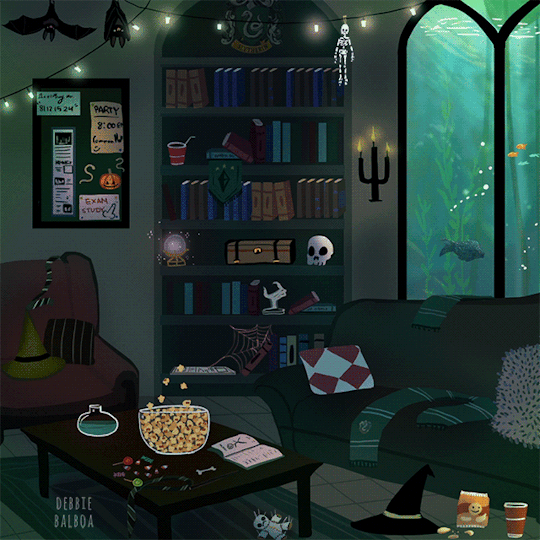


Hogwarts Houses common rooms in Halloween season
253K notes
·
View notes
Text
Mirror, Mirror on the Wall, Who is Wokest of Them All?
I position myself on the optimistic side on the scale of cyberpessimist to cyberoptimist (Lindgren 52). However, looking at cinematic art we see technopoly being wielded for dramatic plots or as a tool for mass indoctrination in pieces such as Her, The Circle, and Black Mirror (Postman, qtd in Lindgren 52). All three caution ‘technological solutionism’ through the eyes of a protagonist that is painted as a naïve cyberoptimist (Morozov, qtd in Lindgren 52).
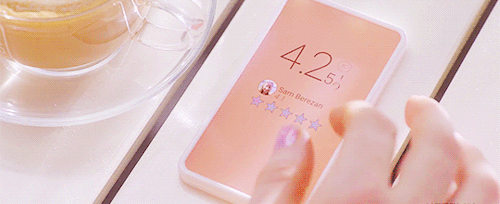
I want to focus on the episode ‘Nosedive’ from Black Mirror. In the episode, the ‘disconnect between ‘real’ and ‘virtual’ identities’ is abolished (Lindgren 72). The microcultures, or fragmentation of our identities, we experience in our current lives are secured by platform barriers and the online vs offline (Simmel, qtd. in Lindgren 36). In Nosedive there an absolute context collapse where offline and online selves are judged by one unanimous rating system, a singular identity is created and hierarchies form (boyd 30, Lindgren 89). The impact of de-individuation means the population are more affected by norms stemming from the offline world (Zimbardo, qtd. In Lindgren 78). The plot highlights how technology could create a hyper-social-cyber landscape resulting in any deviation from the norms eliciting instantaneous punishment. Additionally, we see a hyperbolized manifestation of the ‘intensification loop of behavioural conformation’ to mimic the idealized versions of ourselves we create online (Walther, qtd, in Lindgren 82).
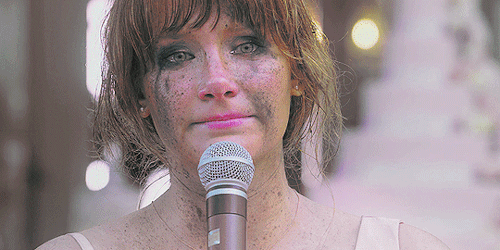
So, how likely is it for Nosedive to occur? Well, it’s rating system is rooted in reality. Whether it be the number of likes, downvotes, or numerical Uber ratings we are already subject to ranking (Robinson 1). There’s also a level of corporate dominance in Nosedive that we see in wider society today, a system that favours the elite both in offline and online circles. Ultimately yes, it is possible a system of ratings could evolve out of computer-mediated communication but we shouldn’t underestimate the intellectual awareness of technology users. Being part of a generation that has grown up on the internet and social media I am limited in my perspective as I can’t romanticise a time pre-CMC like Turkle (Jurgenson 1). However, the cyber-pessimism I see in media often targets younger generations painting them as mindless users (is it a coincidence the pastel tones throughout Nosedive match millennial pink?). A cynical approach to technology and social media in society can undermine the immense potential they carry. Society is in constant flux, and technology is a powerful agent in generating change (Lindgren 49). Whether it is for better or worse, we will have to wait and see but I remain hopeful and will continue to unashamedly binge all of Black Mirror.
Works Cited
Boyd, danah. It’s Complicated. Yale University Press, 2015.
Jurgenson, Nathan. The IRL Fetish. The New Inquiry, 2017. [date accessed: 15/10/17] https://thenewinquiry.com/the-irl-fetish/
Lindgren, Simon. Digital Media & Society. Los Angeles, Sage, 2017, Print.
Robinson, Tasha. Black Mirror’s third season opens with a vicious take on social media. The Verge, 2017. [date accessed: 15/10/17] https://www.theverge.com/2016/10/24/13379204/black-mirror-season-3-episode-1-nosedive-recap
0 notes
Photo

Tbh I don’t understand why ppl do this
5K notes
·
View notes
Text
Selling Ourselves Short with 140 Characters
In class, we have been discussing whether digital life writing can give an authentic representation of its author. The way I present myself varies platform to platform. For example, being friends with colleagues means I have curated a Facebook personality that is relatively formal. However, the more I examine what I post and how I interact with others I realise that my self-representation and the ‘fragments’ I share online go beyond my friends (Simmel 379-380, qtd. in Lindgren 36) , or, the ‘normative practices’ that the users of each platform develop (Morrison 112). I am most influenced by the affordances and constraints of each platform.
I want to focus on Twitter as its key selling point is a huge constraint in usability. Is 140 characters enough to give an accurate representation of ourselves or does it diminish our selfhood? Alternatively, does the character limit act as an affordance that streamlines our thoughts? If an affordance is supposed to ‘reduce cognitive friction’ then giving us only 140 characters is surely an affordance as we have less text to curate (Norman 74, qtd. in Morrison 117). However, less space to curate may mean the ‘back-region’ activity in creating the tweet is greater (Goffman, qtd. in Lindgren 38). I think the character limit sits in a grey area where depending on the user it can be a constraint or an affordance. Personally, condensing thoughts into 140 characters has enabled me to think more concisely (and given me an irrational love of bullet pointing…). The character limit of Twitter gives a broader perspective into someone’s life but to a shallower depth. The range of engagement afforded by Twitter encourages frequent and varied sharing of ourselves by keeping interactions with the site and others short but sweet. Even negative interactions can be over in the 3 clicks it takes to block an account. Regardless of the length of information shared I believe Twitter is an accurate representation of at least a fragment of ourselves, it can just make it harder for the reader to discern authorial intent. It’s difficult to talk in generalities, as despite our collective usage shaping Twitter, it too shapes us and the way we as individuals contribute to this communal space is personal (Lindgren 6-8).

BREAKING NEWS: As I was editing this Twitter introduced a 280-character limit… The undermining of my title aside, I’m excited to see the influence this has on the set of norms users have created –particularly thread creation and interaction. How do I feel about using 280 characters?
Twitter: *introduces 280 character limit* Me: pic.twitter.com/tWiaorV5DA
— Katie Tomsett ⚡ (@ktmeep) September 28, 2017
Works Cited
Lindgren, Simon. Digital Media & Society. Los Angeles, Sage, 2017, Print.
Morrison, Aimee. "Facebook And Coaxed Affordances." Identity Technologies: Constructing The Self Online, 112-31, Aimee Morrison, U Of Wisconsin P, 2014, p. 112, 117.
0 notes
Photo

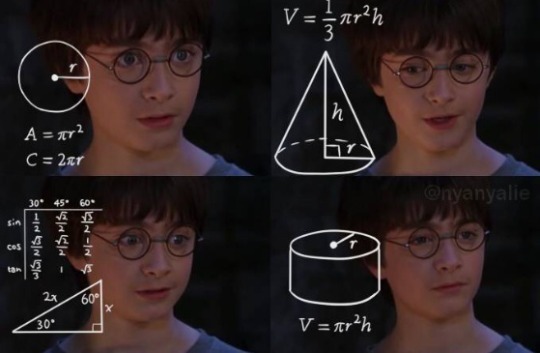
398 notes
·
View notes
